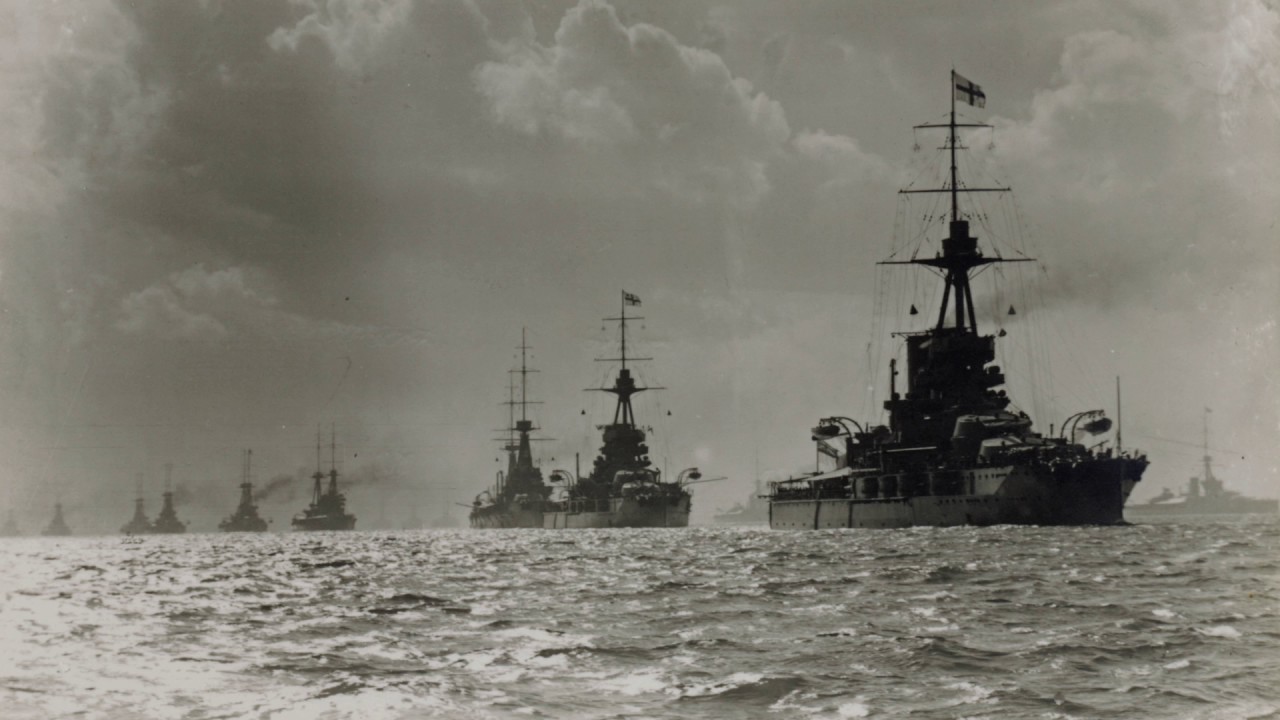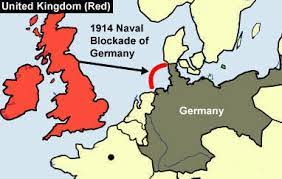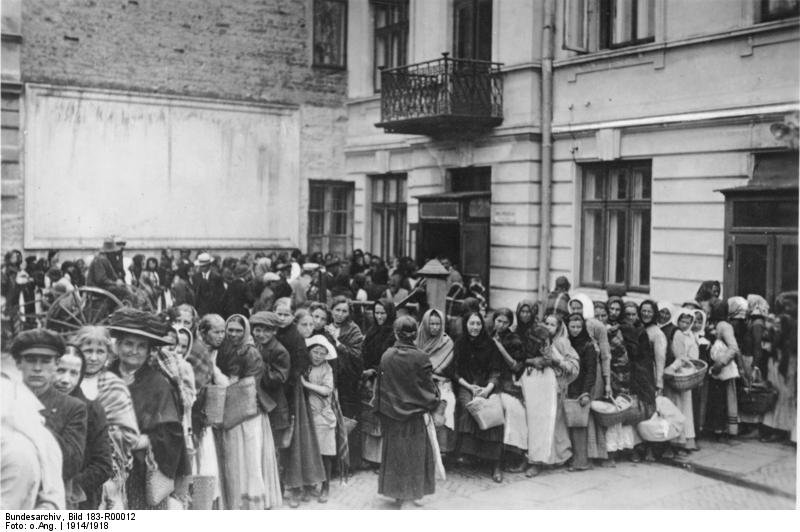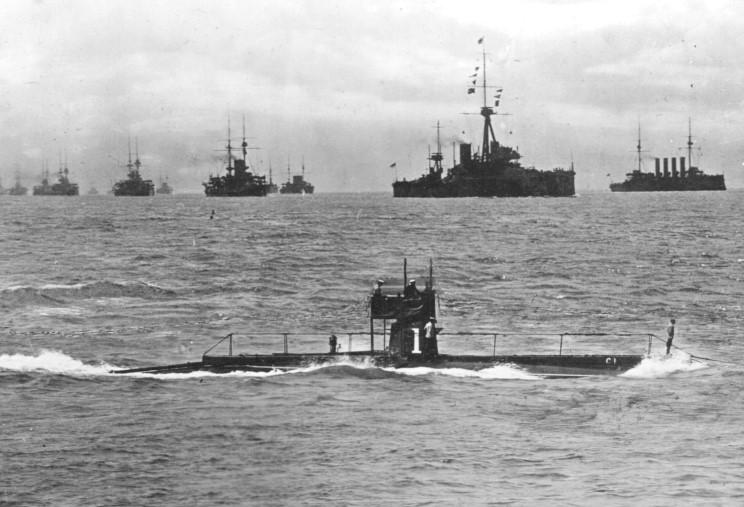Everything in Short Supply
Germans Fainting in the Streets
Not Even a Single Loaf of Bread, Nor a Glimmer of Guilt.
Special to The Great War Project.
(11 February) The British blockade of Germany is nearly air tight.
“The addition of ships from the U.S. Navy,” reports historian Thomas Fleming, “enabled the British to create a virtually impenetrable blockade.”

British blockade of Germany.
Writes another historian, “the goal of preventing the arrival of even a single loaf of bread in Germany was all but achieved.”
“The United States Navy joined with the Royal Navy,” reports historian Hew Strachan, “in enforcing the blockade against both the Central Powers [Germany and Austria] and their neutral suppliers, and it did so with unexpected vigor.”
According to historian Martin Gilbert…
“Germany’s civilian economy was rapidly reaching a crisis point. There were shortages of everything: “rubber, tin, copper, clothing, household items, and above all, food, worsened by a poor harvest in 1917.”
Coal was in short supply, reports historian Adam Hochschild, “and those waiting in line for it were often shod in cardboard shoes with wooden soles since scarce leather was saved for soldiers’ boots.”
“So many horses had been sent to the front,” Hochschild continues, “that the Berlin Zoo’s elephants were put to work hauling wagons through the streets.”

British blockade map.
According to historian Thomas Fleming, “Fats and meat were all but vanished from the German diet. The death rate was climbing ominously. The tuberculosis rate had doubled.”
One American reporter who spent time in Germany reports that Germans are fainting in the streets from hunger.
In early 1918, German labor unions call a general strike and “a million workers walk off the job in a half dozen cities.

Breadlines in Germany.
This news sparks a new debate in the United States. Some condemn the British blockade, Fleming reports, “as an attack on defenseless women, children, and old people.”
But in the White House, Fleming observes, “there was not even a glimmer of guilt about killing civilians.” Wilson’s closest adviser, Colonel Edward House, tells the president, “It looks as if things are beginning to crack. I do not believe Germany can maintain a successful offensive with their people in their present state of mind.”
“The House-Wilson team all but gloated when the foreign minister of Austria-Hungary and the chancellor of Germany replied to Wilson’s Fourteen Points address in conciliatory tones, stressing their desire for peace.”
Still, reports historian Fleming, there remains a “war party” in Germany that is powerful and remains committed to fighting the war to the finish. “Too much talk of peace might also inspire the war-weary populations of France, England, and Italy to start calling for an immediate armistice.”

British blockade taking its toll.
Nevertheless, the balance of forces on the Western Front continue to favor Germany and Austria-Hungary. “The British had suffered 800,000 casualties in 1917,” reports historian Norman Stone, “and were again under a million in strength. The Americans had begun to arrive, but they had still not been training sufficiently.”
Only a single American division — some 10,000 men — is battle ready.
